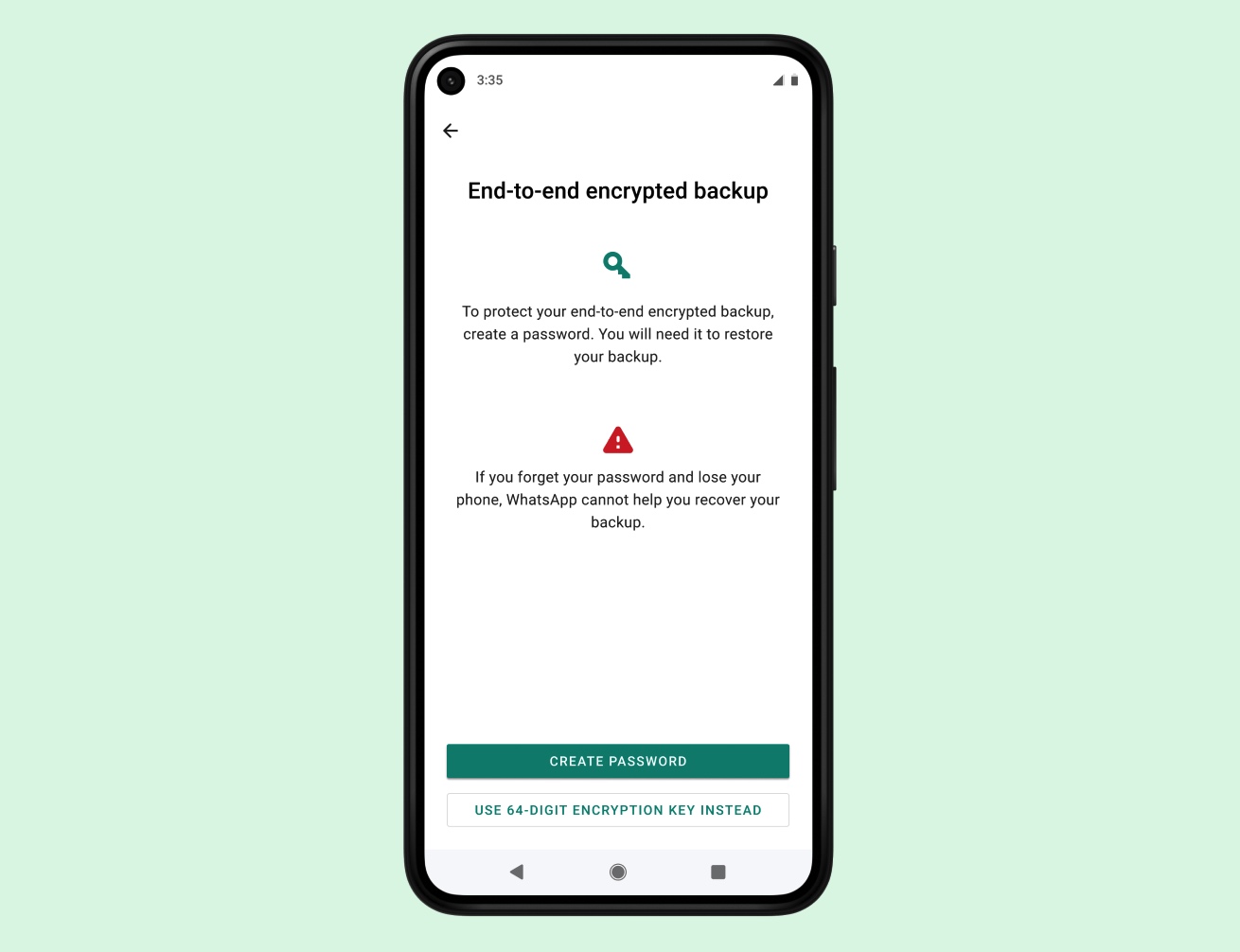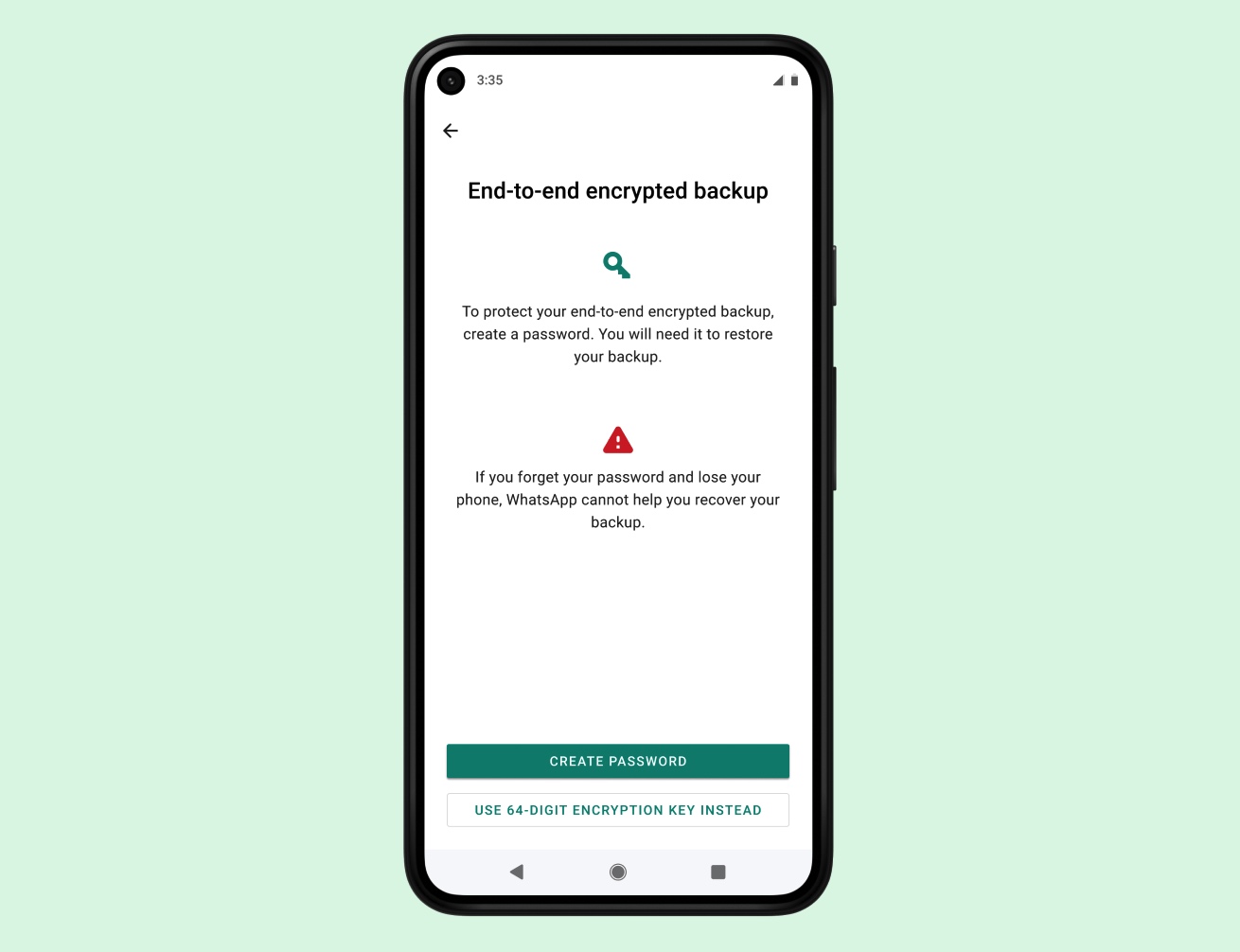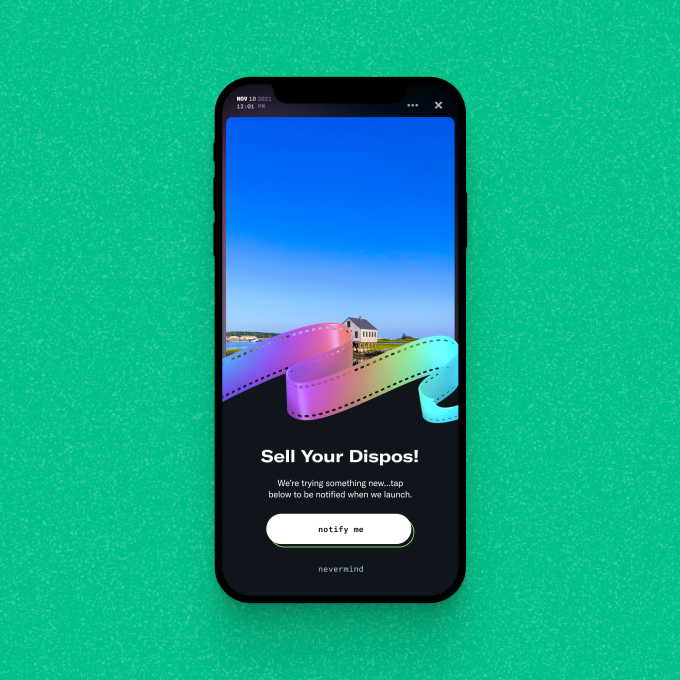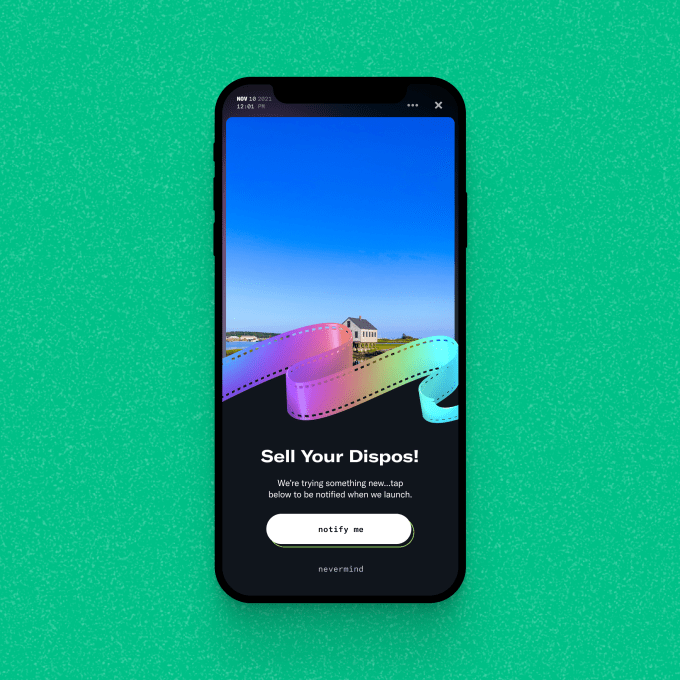APPS
Facebook trials expanding portability tools ahead of FTC hearing


Facebook is considering expanding the types of data its users are able to port directly to alternative platforms.
In comments on portability sent to US regulators ahead of an FTC hearing on the topic next month, Facebook says it intends to expand the scope of its data portability offerings “in the coming months”.
It also offers some “possible examples” of how it could build on the photo portability tool it began rolling out last year — suggesting it could in future allow users to transfer media they’ve produced or shared on Facebook to a rival platform or take a copy of their “most meaningful posts” elsewhere.
Allowing Facebook-based events to be shared to third party cloud-based calendar services is another example cited in Facebook’s paper.
It suggests expanding portability in such ways could help content creators build their brands on other platforms or help event organizers by enabling them to track Facebook events using calendar based tools.
However there are no firm commitments from Facebook to any specific portability product launches or expansions of what it offers currently.
For now the tech giant only lets Facebook users directly send copies of their photos to Google’s eponymous photo storage service — a transfer tool it switched on for all users this June.
“We remain committed to ensuring the current product remains stable and performant for people and we are also exploring how we might extend this tool, mindful of the need to preserve the privacy of our users and the integrity of our services,” Facebook writes of its photo transfer tool.
On whether it will expand support for porting photos to other rival services (i.e. not just Google Photos) Facebook has this non-committal line to offer regulators: “Supporting these additional use cases will mean finding more destinations to which people can transfer their data. In the short term, we’ll pursue these destination partnerships through bilateral agreements informed by user interest and expressions of interest from potential partners.”
Beyond allowing photo porting to Google Photos, Facebook users have long been able to download a copy of some of the information it holds on them.
But the kind of portability regulators are increasingly interested in is about going much further than that — meaning offering mechanisms that enable easy and secure data transfers to other services in a way that could encourage and support fast-moving competition to attention-monopolizing tech giants.
The Federal Trade Commission is due to host a public workshop on September 22, 2020, which it says will “examine the potential benefits and challenges to consumers and competition raised by data portability”.
The regulator notes that the topic has gained interest following the implementation of major privacy laws that include data portability requirements — such as the European Union’s General Data Protection Regulation (GDPR) and the California Consumer Privacy Act (CCPA).
It asked for comment submissions by August 21, which is what Facebook’s paper is responding to.
In comments to the Reuters news agency, Facebook’s privacy and public policy manager, Bijan Madhani, said the company wants to see “dedicated portability legislation” coming out of any post-workshop recommendations.
It reports that Facebook supports a portability bill that’s doing the rounds in Congress — called the Access Act, which is sponsored by Democratic Senators Richard Blumenthal and Mark Warner, and Republican senator Josh Hawley — which would require large tech platforms to let their users easily move their data to other services.
Albeit Madhani dubs it a good first step, adding that the company will continue to engage with the lawmakers on shaping its contents.
“Although some laws already guarantee the right to portability, our experience suggests that companies and people would benefit from additional guidance about what it means to put those rules into practice,” Facebook also writes in its comments to the FTC .
Ahead of dipping its toe into portability via the photo transfer tool, Facebook released a white paper on portability last year, seeking to shape the debate and influence regulatory thinking around any tighter or more narrowly defined portability requirements.
In recent months Mark Zuckerberg has also put in facetime to lobby EU lawmakers on the topic, as they work on updating regulations around digital services.
The Facebook founder pushed the European Commission to narrow the types of data that should fall under portability rules. In the public discussion with commissioner Thierry Breton, in May, he raised the example of the Cambridge Analytica Facebook data misuse scandal, claiming the episode illustrated the risks of too much platform “openness” — and arguing that there are “direct trade-offs about openness and privacy”.
Zuckerberg went on to press for regulation that helps industry “balance these two important values around openness and privacy”. So it’s clear the company is hoping to shape the conversation about what portability should mean in practice.
Or, to put it another way, Facebook wants to be able to define which data can flow to rivals and which can’t.
“Our position is that portability obligations should not mandate the inclusion of observed and inferred data types,” Facebook writes in further comments to the FTC — lobbying to put broad limits on how much insight rivals would be able to gain into Facebook users who wish to take their data elsewhere.
Both its white paper and comments to the FTC plough this preferred furrow of making portability into a ‘hard problem’ for regulators, by digging up downsides and fleshing out conundrums — such as how to tackle social graph data.
On portability requests that wrap up data on what Facebook refers to as “non-requesting users”, its comments to the FTC work to sew doubt about the use of consent mechanisms to allow people to grant each other permission to have their data exported from a particular service — with the company questioning whether services “could offer meaningful choice and control to non-requesting users”.
“Would requiring consent inappropriately restrict portability? If not, how could consent be obtained? Should, for example, non-requesting users have the ability to choose whether their data is exported each time one of their friends wants to share it with an app? Could an approach offering this level of granularity or frequency of notice could lead to notice fatigue?” Facebook writes, skipping lightly over the irony given the levels of fatigue its own apps’ default notifications can generate for users.
Facebook also appears to be advocating for an independent body or regulator to focus on policy questions and liability issues tied to portability, writing in a blog post announcing its FTC submission: “In our comments, we encourage the FTC to examine portability in practice. We also ask it to recommend dedicated federal portability legislation and provide advice to industry on the policy and regulatory tensions we highlight, so that companies implementing data portability have the clear rules and certainty necessary to build privacy-protective products that enhance people’s choice and control online.”
In its FTC submission the company goes on to suggest that “an independent mechanism or body” could “collaboratively set privacy and security standards to ensure data portability partnerships or participation in a portability ecosystem that are transparent and consistent with the broader goals of data portability”.
Facebook then further floats the idea of an accreditation model under which recipients of user data “could demonstrate, through certification to an independent body, that they meet the data protection and processing standards found in a particular regulation, such as the [EU’s] GDPR or associated code of conduct”.
“Accredited entities could then be identified with a seal and would be eligible to receive data from transferring service providers. The independent body (potentially in consultation with relevant regulators) could work to assess compliance of certifying entities, revoking accreditation where appropriate,” it further suggests.
However its paper also notes the risk that requiring accreditation might present a barrier to entry for the small businesses and startups that might otherwise be best positioned to benefit from portability.
APPS
Best ASO Tips To Boost Your App Search In 2022

You need your application to be really effective in the overpopulated application market. Then, at that point, you will have to drive downloads to endure. So when it’s all said and done, you must account for yourself. Get your application the consideration it merits.
The uplifting news, however, is that customers love to download applications – last year, we downloaded in excess of 200 billion applications around the world, and that figure is set to increment to 258 billion every year by 2022 as cell phone reception increments.
Assuming you need to be seen and have your application downloaded by however many clients as could reasonably be expected, then, at that point, you should begin by taking a gander at the application store.
Underneath, we’ve assembled probably the best application store improvement methods to assist you with creating more downloads in 2021 and then some…
Start with Your Application Name
The odds are you as of now have an extraordinary name for your application, yet an appropriately advanced application is about significantly more than marking.
Assuming you need to amplify transparency and guarantee you’re showing up when clients look for applications like yours, you ought to remember the primary keywords for your application name or title, comparable to how you’d make a title label while improving a site page.
You could begin with your application name so it tends to be plainly recognized, thus it appears on the home screen of gadgets.
Then, at that point, you can add a scramble or vertical bar prior to adding a few pertinent watchwords to your speciality, or even put your application name in quotes as we did with FORE Business Golf Networking.
Urge Users to Leave Reviews
You could ask for reviews by clients through the means of your site, or through an in-application notice toward the finish of their meeting, yet make sure to restrict the number of pop-ups you execute with the goal that you don’t disturb or disappoint your clients, as this could urge them to erase your application.
We’d support all application engineers and entrepreneurs to react to criticism on their applications, as this can further develop client relations and resolve issues in an open arena.
Zero in on Your Application Depiction
Your application depiction is your principle assemblage of text your landing page content, in a manner of speaking. Utilize a site like KeywordTool.io to discover information on your picked catchphrases to expand your openness. As portrayals are shortened, ensure you remember the main data for the initial three lines of your depiction, and afterwards add things like social confirmation, emoticon, and suggestions to take action to build commitment and downloads.
Incorporate Appealings Screen Captures
Pictures and recordings won’t help your application rank, yet they will expand changes and assist clients with working out whether it’s an application they truly need.
There’s a little guide in empowering clients toward downloading your application if in any case, they’re not going to interface with it, or download and leave a negative survey when they understand it wasn’t what was promoted.
Assuming you need to ‘tart up’ your item page, then, at that point, you can add marking and extra text and data and designs to your recordings and screen capture, yet they ought not to diminish your item.
Pay for App Store or Play Store
As we have SEO and pay-per-click, you need to work one next to the other (one is a gradual methodology with long haul benefits – the other is a speedy success yet requires an endless spending plan), application store promotions can be utilized to get the message out with regards to your new programming and assist you with positioning at the highest point of query items pages – in front of your opposition and enormous names in the application world.
Keep in mind, you’ll need to focus on the right crowd and art an advertisement that will assist you with changing over and that since you’re paying for situations, that doesn’t mean clients will download or cooperate with your application.
Wrapping Up!
You can employ a group of App Store Optimization Services suppliers to benefit a scope of application store improvement administrations, including watchword advancement, resource enhancement, and restriction to guarantee your application is seen by individuals that matter.
We have long periods of involvement in creating and showcasing applications and have assisted different customers with expanding their downloads by infiltrating rewarding and regularly undiscovered business sectors.
Author:
Prachi Gupta likes to write information about Digital Marketing Trends that can help audience to grow their business.
APPS
WhatsApp will finally let users encrypt their chat backups in the cloud

WhatsApp said on Friday it will give its two billion users the option to encrypt their chat backups to the cloud, taking a significant step to put a lid on one of the tricky ways private communication between individuals on the app can be compromised.
The Facebook-owned service has end-to-end encrypted chats between users for more than a decade. But users have had no option but to store their chat backup to their cloud — iCloud on iPhones and Google Drive on Android — in an unencrypted format.
Tapping these unencrypted WhatsApp chat backups on Google and Apple servers is one of the widely known ways law enforcement agencies across the globe have for years been able to access WhatsApp chats of suspect individuals.
Now WhatsApp says it is patching this weak link in the system.
“WhatsApp is the first global messaging service at this scale to offer end-to-end encrypted messaging and backups, and getting there was a really hard technical challenge that required an entirely new framework for key storage and cloud storage across operating systems,” said Facebook’s chief executive Mark Zuckerberg in a post announcing the new feature.
Store your own encryption keys
The company said it has devised a system to enable WhatsApp users on Android and iOS to lock their chat backups with encryption keys. WhatsApp says it will offer users two ways to encrypt their cloud backups, and the feature is optional.
In the “coming weeks,” users on WhatsApp will see an option to generate a 64-digit encryption key to lock their chat backups in the cloud. Users can store the encryption key offline or in a password manager of their choice, or they can create a password that backs up their encryption key in a cloud-based “backup key vault” that WhatsApp has developed. The cloud-stored encryption key can’t be used without the user’s password, which isn’t known by WhatsApp.

Image Credits: WhatsApp/supplied
“We know that some will prefer the 64-digit encryption key whereas others want something they can easily remember, so we will be including both options. Once a user sets their backup password, it is not known to us. They can reset it on their original device if they forget it,” WhatsApp said.
“For the 64-digit key, we will notify users multiple times when they sign up for end-to-end encrypted backups that if they lose their 64-digit key, we will not be able to restore their backup and that they should write it down. Before the setup is complete, we’ll ask users to affirm that they’ve saved their password or 64-digit encryption key.”
A WhatsApp spokesperson told TechCrunch that once an encrypted backup is created, previous copies of the backup will be deleted. “This will happen automatically and there is no action that a user will need to take,” the spokesperson added.
Potential regulatory pushback?
The move to introduce this added layer of privacy is significant and one that could have far-reaching implications.
End-to-end encryption remains a thorny topic of discussion as governments continue to lobby for backdoors. Apple was reportedly pressured to not add encryption to iCloud Backups after the FBI complained, and while Google has offered users the ability to encrypt their data stored in Google Drive, the company allegedly didn’t tell governments before it rolled out the feature.
When asked by TechCrunch whether WhatsApp, or its parent firm Facebook, had consulted with government bodies — or if it had received their support — during the development process of this feature, the company declined to discuss any such conversations.
“People’s messages are deeply personal and as we live more of our lives online, we believe companies should enhance the security they provide their users. By releasing this feature, we are providing our users with the option to add this additional layer of security for their backups if they’d like to, and we’re excited to give our users a meaningful advancement in the safety of their personal messages,” the company told TechCrunch.
WhatsApp also confirmed that it will be rolling out this optional feature in every market where its app is operational. It’s not uncommon for companies to withhold privacy features for legal and regulatory reasons. Apple’s upcoming encrypted browsing feature, for instance, won’t be made available to users in certain authoritarian regimes, such as China, Belarus, Egypt, Kazakhstan, Saudi Arabia, Turkmenistan, Uganda and the Philippines.
At any rate, Friday’s announcement comes days after ProPublica reported that private end-to-end encrypted conversations between two users can be read by human contractors when messages are reported by users.
“Making backups fully encrypted is really hard and it’s particularly hard to make it reliable and simple enough for people to use. No other messaging service at this scale has done this and provided this level of security for people’s messages,” Uzma Barlaskar, product lead for privacy at WhatsApp, told TechCrunch.
“We’ve been working on this problem for many years, and to build this, we had to develop an entirely new framework for key storage and cloud storage that can be used across the world’s largest operating systems and that took time.”
APPS
Dispo launches a test to gauge user interest in selling their photos as NFTs

Dispo, the photo-sharing app that emulates disposable cameras, started rolling out a test yesterday that will record user interest in selling photos as NFTs. Some users will now see a sell button on their photos, and when they tap it, they can sign up to be notified when the ability to sell Dispo photos launches.
CEO and co-founder Daniel Liss told TechCrunch that Dispo is still deciding how it will incorporate NFT sales into the app, which is why the platform is piloting a test with its users. Dispo doesn’t know yet what blockchain it would use, if it would partner with an NFT marketplace or what cut of sales Dispo would take.
“I think it’s safe to say from the test that there will be an experience native to the Dispo app,” Liss said. “There are a number of ways it could look — there could be a native experience within Dispo that then connects through an API to another platform, and in turn, they’re our partner, but to the community, it would look native to the Dispo app.”

Image Credits: Dispo
This marks a new direction for the social media app, which seeks to redefine the photo-sharing experience by only letting users see the photos they took at 9 AM the next morning. From Dispo’s perspective, this gimmick helps users share more authentically, since you take one photo and then you’re done — the app isn’t conducive to taking dozens of selfies and posting the “best” image of yourself. But though it only launched in December 2019, Dispo has already faced both buzzy hype and devastating controversy.
Until about a year ago, the app was called David’s Disposables, named after co-founder and YouTuber David Dobrik. The app was downloaded over a million times in the first week after its release and hit No. 1 on the App Store charts. In March 2021, the app dropped its waitlist and relaunched with social network features, but just weeks later, Insider reported sexual assault allegations against a member of Vlog Squad, Dobrik’s YouTube prank ensemble. In response, Spark Capital severed ties with the company, leading to Dobrik’s departure. Other investors like Seven Seven Six and Unshackled Ventures, which contributed to the company’s $20 million Series A round, announced that they would donate any profits from their investments in Dispo to organizations working with survivors of sexual assault.
Liss told TechCrunch in June, when the company confirmed its Series A, that Dobrik’s role with the company was as a marketing partner — Liss has been CEO since the beginning. In light of the controversy, Liss said the app focused on improving the product itself and took a step back from promotion.
According to data from the app analytics firm SensorTower, Dispo has reached an estimated 4.7 million global installs to date since launch. Though the app saw the most downloads in January 2020, when it was installed over 1 million times, the app’s next best month came in March 2021, when it removed its waitlist — that month, about 616,000 people downloaded Dispo. Between March and the end of August, the app was downloaded around 1.4 million times, which is up 118% year over year compared to the same time frame in 2020 — but it should be expected that this year’s numbers would be higher, since last year, the app’s membership was exclusive.

Image Credits: Dispo
Now, with the announcement that Dispo is pursuing NFTs, Liss hopes that his company won’t just change how people post photos, but what the relationship will be between platforms and the content that users create.
“Why NFTs? The most powerful memories of our lives have value. And they have economic value, because we created them, and the past of social media fails to recognize that,” Liss told TechCrunch. “As a result, the only way that a creator with a big following is compensated is by selling directly to a brand, as opposed to profiting from the content itself.”
Adding NFT sales to the app offers Dispo a way to profit from a cut of user sales, but it stands to question how adding NFT sales could impact the community-focused feel of Dispo.
“I think there is tremendous curiosity and interest,” Liss said. “But these problems and questions are why we need more data.”
-

 WORDPRESS7 days ago
WORDPRESS7 days ago10 WordPress Influencers to Follow in 2024 – WordPress.com News
-

 MARKETING7 days ago
MARKETING7 days agoFeeling Stuck: What to Do When You Don’t Know What to Do
-

 PPC6 days ago
PPC6 days agoCompetitor Monitoring: 7 ways to keep watch on the competition
-

 PPC5 days ago
PPC5 days agoA History of Google AdWords and Google Ads: Revolutionizing Digital Advertising & Marketing Since 2000
-

 WORDPRESS6 days ago
WORDPRESS6 days agoThrive Architect vs Divi vs Elementor
-

 SEARCHENGINES6 days ago
SEARCHENGINES6 days agoMore Google March 2024 Core Update Ranking Volatility
-

 PPC6 days ago
PPC6 days ago31 Ready-to-Go Mother’s Day Messages for Social Media, Email, & More
-

 WORDPRESS5 days ago
WORDPRESS5 days agoTurkish startup ikas attracts $20M for its e-commerce platform designed for small businesses












